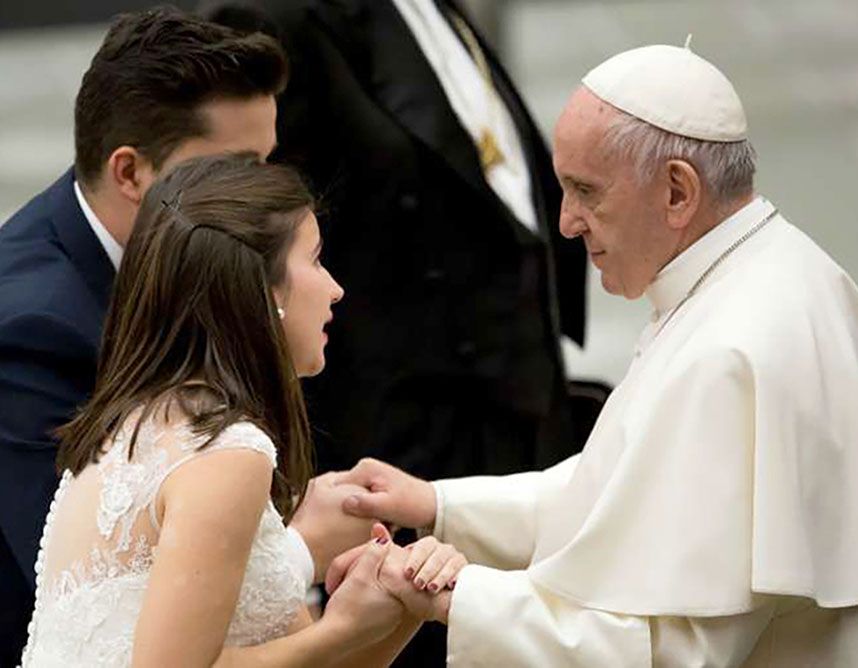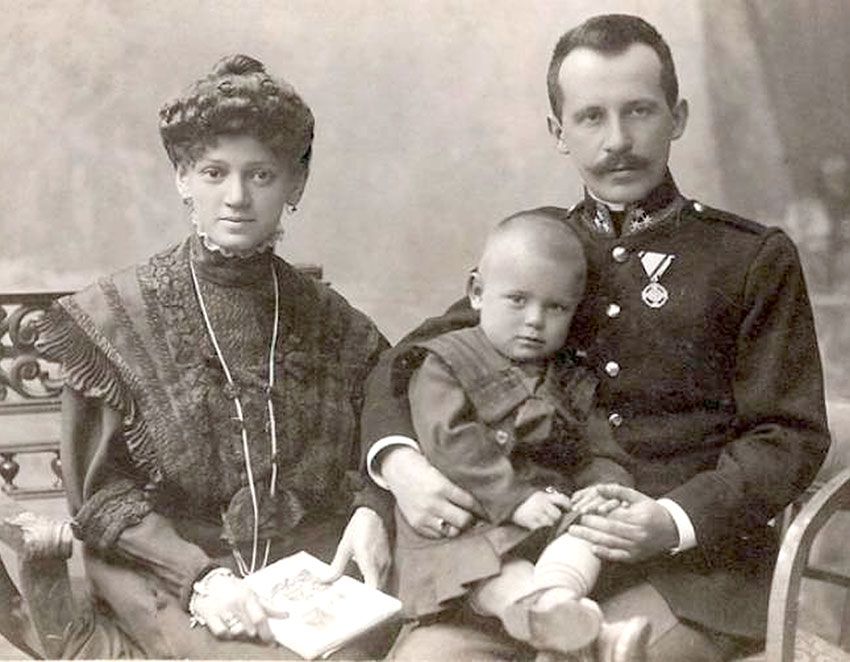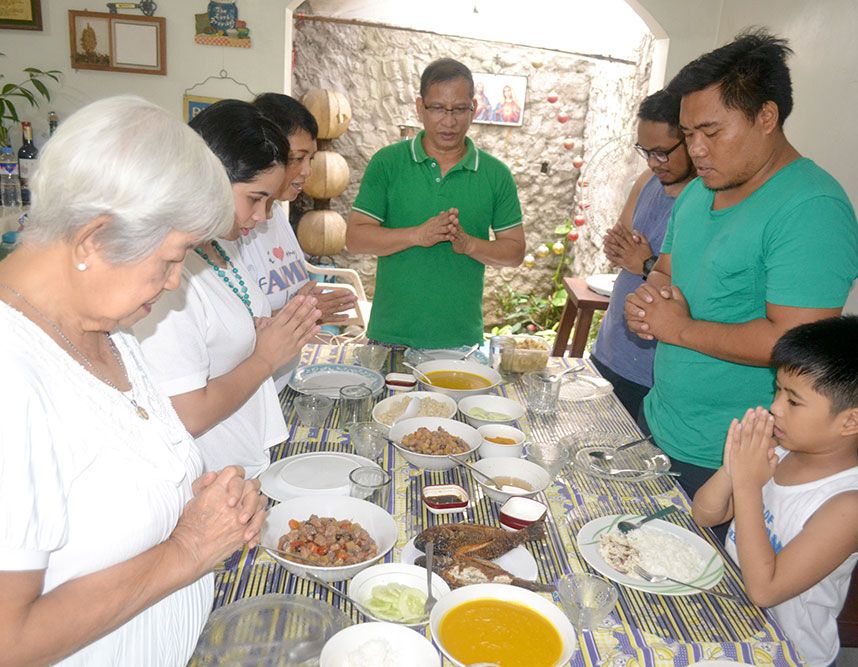So much has been written about the harms of divorce on the family. We have no divorce law in our country but the haste with which the divorce bill is being pushed in Congress worries me. Still we continue to pray and oppose the divorce bill. Divorce may not come in my lifetime, but it could happen in the next generation, God forbid. Marriages and families are at stake in our society, threatened by indifference and individualism.
Welcome to the generation we know as “Looking Out for #1,” whose goal in life is the pursuit of happiness through posting curated snapshots on social media. If something makes them less than happy, they would drop it and move on to the next new thing.
None of our children (ages 16 to 27) are married. Yet my wife and I find ourselves pondering their future marriages given the dangerous values creeping into people’s views about marriage. Can our children’s marriages withstand the onslaught of a culture that is hostile to our faith? How do we lead our children to strengthen and protect their future marriages? How do we keep them from falling prey to the allure of divorce? I hope these tips that we have compiled based on the various stages of parenting can help you.
Start them young. In 1981, St. John Paul II envisioned marriage preparation as a gradual and continuous process from birth to young adulthood. The family is where the primary work of marriage preparation takes place, not in the Pre-Cana class. He referred to the initial stage as the remote preparation which begins in early childhood. It is a period when authentic human values are instilled and character is formed. We introduce our children to virtues like humility, generosity, self-control, prudence, and respect for the opposite sex.
The engaged couples we meet in marriage prep classes have already formed notions about marriage. Most of them attend the Pre-Cana because it is a church requirement, but their minds are preoccupied by wedding details. The classes may be helpful to some with the right disposition, but for many it is instruction that comes twenty years too late, delivered by strangers they will encounter for the first and last time.
Forming pre-teens and teens. From puberty to adolescence, character formation focuses on the affections and chastity. Emotions and desires are not bad, and could develop into love, but we should not mistake them for authentic love. Our sons would be well advised to follow the admonition of 1 Timothy 5:1-2 to treat all young women as their sisters, with absolute purity. We need to teach them that love is not defined by pleasurable or blissful feelings. Feelings change over time.
True love is self-giving rather than self-serving, forgiving rather than resentful. It demands patience, perseverance and renewing in daily acts of love. It loves even when loving is hard. In marriage, it is completely giving of oneself to another and desiring what is best for that person. We choose to love and our love dies only if we allow it to. And because love is not an emotion but a choice, it is up to us to keep it alive.
Parents can initiate this sort of well-timed micro-conversations with their children in the natural setting of the home. The one-time chastity or man-to-man talk does not work. Invest in time, lots of it.
Walk your talk. Parents play a critical role in modeling godly Christian marriage for their children. Good marriages take time and a lot of work from both spouses. There is no perfect marriage. Allow your children to know what you are struggling with and let them witness your game plan in action. Good marriages do not happen by accident. Share the good in your marriage. Show your children marriage as God meant it to be. Live out your marriage vows, day in and day out. We make mistakes and ask for forgiveness. Each day is a chance to love our spouse the same way that God loves us–free, total, faithful and fruitful.
Stef Patag, a homeschooling mom of five concludes: “Many people are so ill-prepared for marriage because they didn’t see a marriage well-lived at home. People develop patterns of communication and conflict resolution early on, and if they don’t see good examples of those, one or two sessions of intense marriage preparation isn’t going to miraculously fill that void… Ultimately what will build solid marriages in the future is: Us making sure our marriages now are what they’re supposed to be.”
Why get married? I get dismayed whenever I hear people say they are seeking a “soul mate.” A soul mate is defined as “a person with whom one has a feeling of deep or natural affinity.” Researchers say that a soul mate spouse requires more investment in terms of time and attention to sustain high levels of happiness.
The primary obligation (of marriage) to care for one’s family ceases and shifts to self-fulfillment through an emotionally satisfying relationship. Such high expectations make soul mate marriages difficult to sustain. “I’m dumping my wife because I’ve finally found my soul mate!”
We must correct the misconception that to make a marriage work, you have to find the right person. Instead, you have to be the right person. The etymology of two related words “compatibility” and “compassion” are the Latin cum + pati. “Pati” means suffering or enduring. Compatibility, therefore, is the ability to suffer with another. Compassion means to alleviate the pain or suffering of the other.
As Pre-Cana facilitators, we’ve met couples who get married for less than ideal reasons. How often do we hear “sacrificial, self-giving love” in their expectations for marriage? Very rarely. Adult children in the dating stage need to be reminded to take time to know the other person well during courtship.
Marriage is not about satisfying one’s ego. It is about loving and serving another. Marriage is not about making adults feel good. It is about leading your family to heaven. It is a vocation to holiness, not happiness. In Pope Francis’ Christmas message to Vatican employees, he reminded, “We are not afraid of holiness. I can tell you, it is the path to joy.”
Many marriages have been torn apart by one or both spouses choosing the path of “happiness” instead of the path of love and fidelity. One does not enter into marriage with a Plan B: “If this doesn’t work out, I can always bail out.” This is the scourge of our divorce culture. Starry-eyed young people can be prone to making rash decisions. If our engaged children are obsessed by the happily-ever-after myth of a perfect marriage, it’s our duty to help them examine their true motives for marriage.
Grace builds on nature. God’s design is for man and woman to complete each other and contribute to the other’s spiritual growth. However, it is not easy for two imperfect persons to live together forever and irrevocably, with their defects grating on each other.
Grace helps couples deal with the problems that inevitably come up, difficulties with children, the breakdown in marital communication, friction with in-laws, etc. Catholics are called to transform the sacramental graces they receive in Holy Matrimony and bring this to completion with the graces in the sacraments of Reconciliation and the Eucharist.
Studies have found that regular religious service attendance is tied to lower divorce rates. A 1993 Gallup poll revealed that among married couples who pray together daily, the divorce rate is one out of 1,153. That is not a typo. Families that pray together, do stay together!
The family is called the domestic church because it is in family life where the faith is to be lived out everyday. In addition to our individual prayer life and our parish worship, we gather together as a family for prayer each day.
Regular prayer rituals, such as mealtime and bedtime prayers, the rosary, gospel reading and attending Mass connect our family to God’s grace, make God an important part of our daily life, and draw us closer as a family.
Offer help. Parents and parents-in-law usually have a better track record than some professionals in helping the troubled marriages of their children. Beware of therapists who focus on pleasing the unhappy spouse more than working to save the marriage. If you lack the confidence in dealing with your children, you can advise them to seek the counsel of their parish priest or persons whose marriages they admire. Perhaps a wedding ninong and ninang who truly live out their marriage vocation could also help with giving out good advice.
We have saints to pray with and for us. Parents can entrust their married children to Saints Louis and Zelie Martin who faithfully fulfilled their roles as spouses and parents through their quiet lives of love, service and self-sacrifice. St. Raphael, the angel of chaste courtship, is the patron of those seeking a marriage partner. We go to St. Joseph to intercede for difficult marriages. He could have divorced Mary but he chose not to go through with it. The beauty of our Catholic faith is that we never journey alone.





























